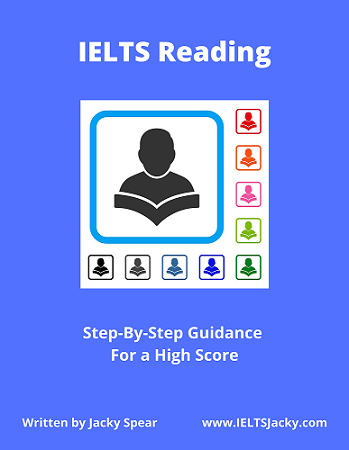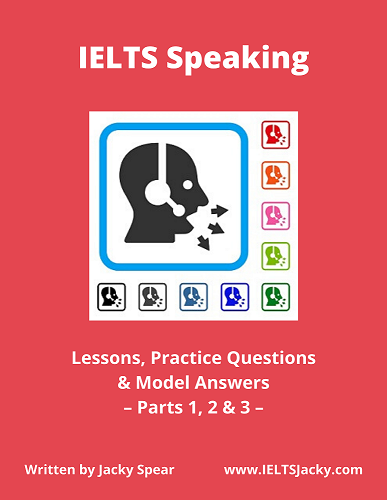IELTS Letter Topics
There are 7 IELTS letter topics that come up regularly in General Writing Task 1. They are:
Your question could be on any one of them.
Occasionally, other topics crop up, for example,
- A letter to thank someone
- A letter making a suggestion or recommendation
We’ll look at some sample questions on these too.
Formal & Informal Letters
There are also two different types of letter that you could be asked to write.
- A formal letter
- An informal letter
You must learn how to decide what type of letter the question requires you to write because you will need to use different language to create a different tone for each style of letter.
It’s very simple to tell the difference between them. Follow this rule:
- If the question includes the word ‘friend’, use informal language.
- If the question does not include the word ‘friend’, use formal language.
The only exception is if the letter is to a close family member when you would also use an informal tone, but these are not common.
So, you should write a formal letter to someone you don’t know or don’t know well and an informal letter to a friend or close family member.
To learn more about formal and informal letters, including advice on using a semi-formal tone, study these lessons.
Formal or Informal? – How to decide what type of letter to write. Sample questions & 2 model letters.
How To Write an Informal Letter & How To Write a Formal Letter – Step-by-step instructions, simple 4 step plan & 6 part letter structure, model letters.
Formal & Informal IELTS Letter Topics
Of the 7 different IELTS letter topics, some are more common for formal letters, others for informal letters. I’ve highlighted the most common in red in the two lists below.
However, you could get any topic for either a formal or informal letter as you’ll see in the sample questions we’ll look at in a minute.
Formal:
- A request
- A letter of complaint
- An apology
- A letter of explanation
- An application or resignation letter
- An invitation
- A letter to make an arrangement
Informal:
- A request
- A letter of complaint
- An apology
- A letter of explanation
- An application or resignation letter
- An invitation
- A letter to make an arrangement
Many of these topics require you to use specific language that you may not use in any other parts of the exam. You’ll find lists of useful phrases to learn on this page: Letter Writing Vocabulary
Sample Questions
– Common IELTS Letter Topics –
To help you recognise the different IELTS letter topics, we’ll now look at some typical questions.
Often, a question will include elements of more than one topic. In the question below, for example, the letter is a request for a student to change courses but you would also need appropriate language for complaining about the original course.
You are not happy with the course you are doing at college and would like to change to a different course.
Write a letter to the college director requesting to change your course. You should include details about:
- what course are you doing now
- why you are not satisfied with that course
- what course you would like to change to.
For this next question, on the other hand, you have to explain something and also make an invitation.
You have recently moved to a new apartment.
Write a letter to a friend. In your letter:
- explain why you have moved
- describe your new apartment
- invite him/her to pay a visit
The point I'm making is that you shouldn’t waste time stressing about the specific IELTS letter topic. Use the topic types as a guideline to help you chose phrases to use but most of all, make sure that you address each bullet point using appropriate language.
Sample Questions for all IELTS Letter Topics
Here are some sample questions for the IELTS letter topics listed above.
A Request
You want to learn a language. There is a teacher near to where you live.
Write a letter to the teacher. In the letter:
- say how you came to know about him/her
- explain why you want to learn
- ask what help they can offer.
You are going to visit the town where your friend went to university.
Write a letter to your friend. In your letter:
- explain why you will be visiting the town
- give details of where you will be staying
- ask your friend to recommend some evening entertainment.
Letter of Complaint
You live in a room in college which you share with another student. There are many problems with this arrangement and you find it difficult to work.
Write a letter to the accommodation officer at the college. In the letter:
- describe the situation
- explain the problems and why is it difficult to work
- say how you would like the situation resolved.
There is a problem with the changing rooms in the sports centre that you visit. You have complained several times but with no success.
Write a letter to the manager of the sports centre. In your letter:
- describe what the problem with the changing rooms is
- say what happened the last times you complained
- explain what you want the manager to do.
An Apology
Your neighbour has written to you to complain about the noise from your flat.
Write a letter to your neighbour. In your letter
- explain the reason for the noise
- offer your neighbour an apology
- tell them what action you will take.
You have just missed a friend’s party.
Write a letter to apologise. In your letter:
- apologise to your friend
- explain why you did not attend the party
- say what you plan to do to make up for missing the party.
A Letter of Explanation
A family member is coming to stay with you. He/she will be arriving by train in the morning, but you won’t be home until the evening.
Write a letter to your relative. In your letter:
- explain arrangements you have made for them to have keys and get into the house
- tell your relative how to get from the train station to your house
- say when you will be home and suggest what you could do together that evening.
You are planning a holiday abroad and will be visiting a town where an old friend lives. You haven't spoken to this friend in a few years.
Write a letter to your friend. In your letter,
- give your friend a brief update of your life since you were last in touch
- explain why you will be travelling to his/her town.
- say what you plan to do when you visit their town.
An Application or Resignation Letter
You would like a job working in the summer camp which runs sports and outdoor activities for children and young people.
Write a letter to the organisers of the summer camp. In your letter:
- describe your personality
- say what relevant experience and skills you have
- explain what sort of work you would like to do.
You have decided to leave your current employment.
Write a letter to your employer. In the letter:
- explain why you are writing
- explain why you have decided to leave the company
- tell your employer what you plan to do after leaving your present employment.
An Invitation
You are organising a seminar for your company.
Write a letter to the manager of another department inviting them to give a presentation at the seminar. In your letter:
- give details of the seminar
- invite them to give a presentation and say why you are inviting them
- say what the presentation should be about.
You are organizing a family party.
Write a letter to your friend inviting him/her to attend the party. In your letter:
- explain why you are organising the party
- describe what you are planning to do
- say why you want your friend to come to the party.
A Letter to Make an Arrangement
You want to book a hotel recommended to you for a family holiday at the seaside.
Write a letter to the hotel manager to make arrangements. In the letter:
- explain what accommodation you require and when you want to stay
- ask what will be included in the price
- enquire about activities and places of interest near the hotel.
You and your friend have booked tickets to go to the theatre. You are now unable to go but have found another friend to accompany him/her instead.
Write a letter to your friend. In the letter:
- explain why you can no longer go to the theatre with your friend
- say who is able to go instead of you
- tell them why you think this person would be good to go with.
More IELTS Letter Topics...
A Letter of Thanks
A colleague lent you a book that helped you to prepare for a presentation at work.
Write a letter to your colleague thanking them. In the letter:
- thank your colleague for lending you the book
- explain how the book helped you
- tell them how the presentation went.
Last month you had a foreign holiday where you stayed with some friends. They have just sent you some photos of your holiday.
Write a letter to your friends. In your letter:
- explain why you didn’t write earlier
- thank them for the photos and for the holiday
- describe your favourite memory from the holiday.
A Letter Making a Suggestion or Recommendation
A local newspaper is organising an award ceremony for local people who make a significant contribution to the community.
Write a letter to the editor to recommend someone you know for an award. In your letter:
- say who the person is
- describe something they have done to benefit the local community
- explain why you think they deserve to be given an award.
Your friend has written a letter to you asking for advice regarding a visit that his/her parents will be making to your area in the near future.
Write a letter to your friend. In your letter:
- recommend a place where they can stay
- suggest the places they can visit
- offer to do something with them.
Use these questions to practice your letter writing skills. You can see model answers for many of them in the lessons on how to write letters on the 7 most common IELTS letter topics. You’ll find them in the menu below.
|
Want to watch and listen to this lesson on IELTS letter topics? Click on this video. |
IELTS General Writing Task 1 – All Lessons
IELTS General Writing – A summary of the test including important facts, test format & assessment.
Letter
Format – The format, the 7 topics, letter
structure, formal & informal, assessment & marking criteria, sample
questions. Essential information you need to know.
Letter Writing Tips – Learn top tips on how to meet the assessment and marking criteria and achieve a high score.
Letter Writing Structure – Find out how to use this easy to learn letter structure to write a high-scoring letter. Includes a model answer.
How To Plan a Letter – Learn a simple 5 step process & 6 part letter structure. Also, help to understand the question & generate ideas.
Formal or Informal – How to decide what type of
letter to write. Sample questions & 2 model letters.
Letter Writing Vocabulary – Learn useful phrases to help you achieve a high score. Also, know how to start & end your letter.
How To Write an Informal Letter – Step-by-step instructions, simple 4 step plan & 6 part letter structure, model letter.
How To Write a Formal Letter – Step-by-step instructions, simple 4 step plan & 6 part letter structure, model letter.
Letter Topics – Learn the 7 most common letter topics & other popular subjects. Includes 20 sample questions.







